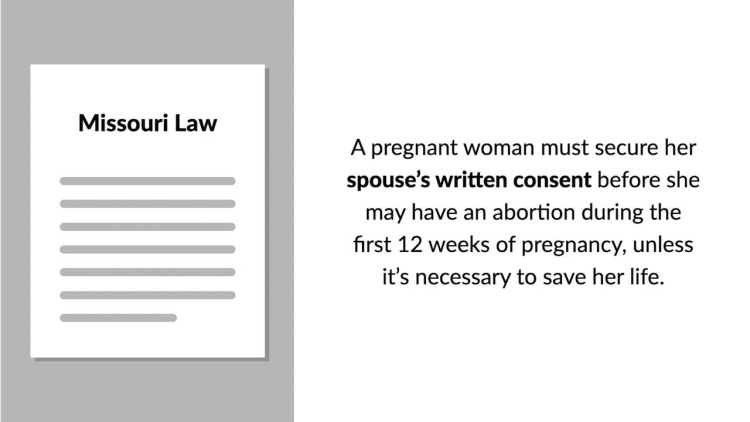Planned Parenthood of Central Missouri v. Danforth
United States Supreme Court
428 U.S. 52 (1976)
- Written by Craig Conway, LLM
Facts
Planned Parenthood of Central Missouri and two physicians (plaintiffs) filed suit in federal district court against John Danforth, who was the attorney general for the State of Missouri, and others (defendants), seeking declaratory and injunctive relief based on the claim that a comprehensive Missouri statute regulating the performance of abortions in the state was unconstitutional. The case was a corollary to Roe v. Wade, 410 U.S. 113 (1973), and Doe v. Bolton, 410 U.S. 179 (1973), because the case raised issues secondary to those presented in Roe and Doe. The complaint challenged a number of provisions of the Missouri law, including § 3(3), which required the consent of a woman’s husband before the woman could obtain an abortion during the first 12 weeks of pregnancy, unless the abortion was certified by a licensed physician as necessary to preserve the life of the mother. The defendants claimed that any major change in family status, including an abortion, was a decision to be made jointly between spouses, because the abortion could affect the woman’s future childbearing potential. The plaintiffs argued that § 3(3) was solely designed to afford a husband the right to unilaterally prevent or veto an abortion, regardless of whether he was the father. The district court, by a divided vote, upheld the constitutionality of the statute as a whole. The plaintiffs petitioned for a stay of enforcement of the law pending appeal. The United States Supreme Court granted certiorari to review.
Rule of Law
Issue
Holding and Reasoning (Blackmun, J.)
What to do next…
Here's why 899,000 law students have relied on our case briefs:
- Written by law professors and practitioners, not other law students. 47,000 briefs, keyed to 994 casebooks. Top-notch customer support.
- The right amount of information, includes the facts, issues, rule of law, holding and reasoning, and any concurrences and dissents.
- Access in your classes, works on your mobile and tablet. Massive library of related video lessons and high quality multiple-choice questions.
- Easy to use, uniform format for every case brief. Written in plain English, not in legalese. Our briefs summarize and simplify; they don’t just repeat the court’s language.






